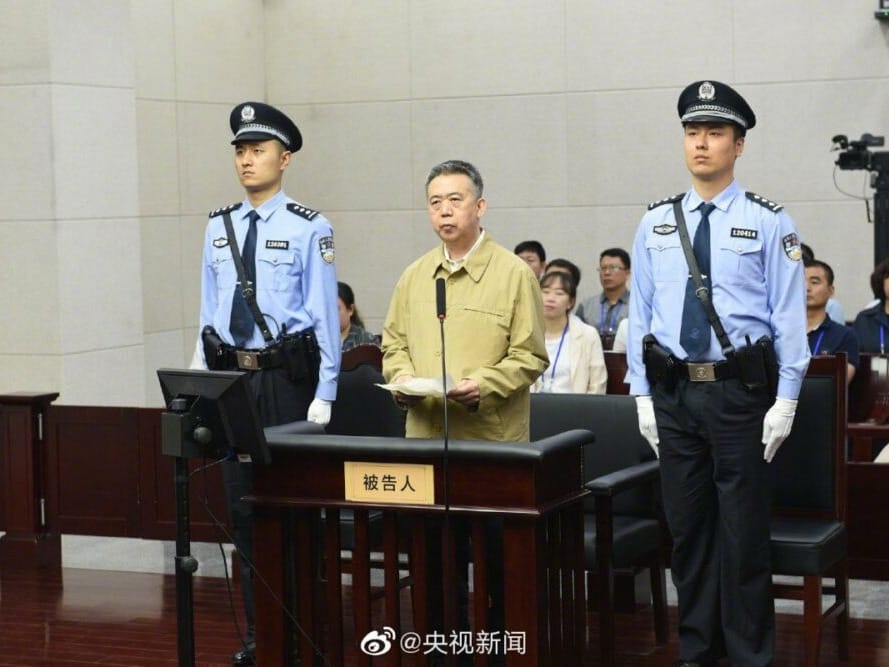Interpol's former president Meng Hongwei reportedly admitted in a Chinese court to accepting $2.1 million in bribes and other kickbacks, Chinese authorities disclosed in a case that raises questions about the autonomy of the world's largest international police organization.
Chinese state media said on Thursday the confession from Meng, who served as China's vice minister of public security, came at a trial in northern China over accusations by a government anti-corruption body that he abused his power by scheming to “willfully squander national assets to give his family a luxurious life.”








